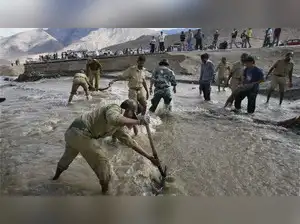Pakistan India Tensions Rise: Latest Developments, Risks, and Diplomatic Fallout
Tensions between Pakistan and India have soared once again, sending waves of concern across South Asia and the broader international community. Recent events in Kashmir and changes to longstanding agreements have raised questions about the risks of escalation, diplomatic challenges, and the role of global powers. In this article, we examine the key developments, underlying issues, and outlook for peace in the region.

Rising Tensions After Kashmir Attack
Violence in Indian-administered Kashmir remains a major source of conflict. In April 2025, a tragic attack killed 26 tourists in Pahalgam, a popular destination in the Himalayan region. India quickly blamed Pakistan-based militants for the attack, reigniting long-standing accusations over cross-border terrorism. Although Pakistan firmly denied any involvement, the incident triggered a rapid escalation between the two neighbors, both of whom possess nuclear weapons.
According to CNN, Pakistani officials claim to have "credible intelligence" suggesting India may launch a military strike within days. This follows a turbulent pattern, as both sides recall past surgical strikes and show little sign of backing down. The situation has become so severe that the United States and China have publicly called for restraint and de-escalation.
Indus Waters Treaty in Jeopardy
Recent hostilities have affected not only security, but also crucial resources. After the Kashmir attack, India suspended its participation in the historic Indus Waters Treaty, a water-sharing agreement dating back to 1960. This treaty has been a pillar of stability, regulating the distribution of vital river systems between Pakistan and India.
Pakistan, facing significant internal water stress, strongly objects to India’s move. As highlighted in The Economic Times, Islamabad is exploring legal avenues at international forums, but its chances of compelling India to reverse course remain limited. The World Bank has a facilitative, not enforcement, role; and legal experts note that forums like the International Court of Justice cannot intervene without both countries’ consent. The legality of India's suspension is widely debated, but experts agree the absence of cooperation heightens the humanitarian risks, especially for agriculture and energy in both nations.
The Diplomatic Fallout: Tit-for-Tat Moves
The Kashmir incident triggered a series of swift diplomatic measures. India cancelled visas for Pakistani nationals and closed its airspace, while Pakistan responded in kind. Citizens and diplomats of both sides were instructed to return home. Both militaries increased readiness along the border, and reports surfaced of Pakistan shooting down an Indian drone in disputed territory. Following these tit-for-tat moves, the risk of an accidental escalation has grown sharply.
Beyond military and diplomatic maneuvers, anti-Pakistan sentiment has surged across India, with protests and calls for accountability. Prime Minister Narendra Modi publicly vowed to track down the attackers “to the ends of the earth.” Pakistani leaders warned that any military operation would be met with a decisive response.
For further detail, the BBC offers an in-depth exploration of the high-stakes situation and the complex background behind the current Kashmir flashpoint.
A Fragile Peace in the Balance
To summarize, the longstanding dispute between Pakistan and India has entered a new and dangerous phase. The Kashmir attack, suspension of bilateral treaties, and diplomatic standoffs have created a climate of mistrust and unpredictability. While mediation efforts continue, including appeals from world powers, the situation remains uncertain. Both sides must weigh the consequences of further escalation against the human and economic costs of continued hostility.
Staying informed through trusted sources is essential. For the latest updates and deep dives into the Pakistan India standoff, explore the recommended readings above. The future of peace in the region depends on dialogue, restraint, and respect for international agreements.